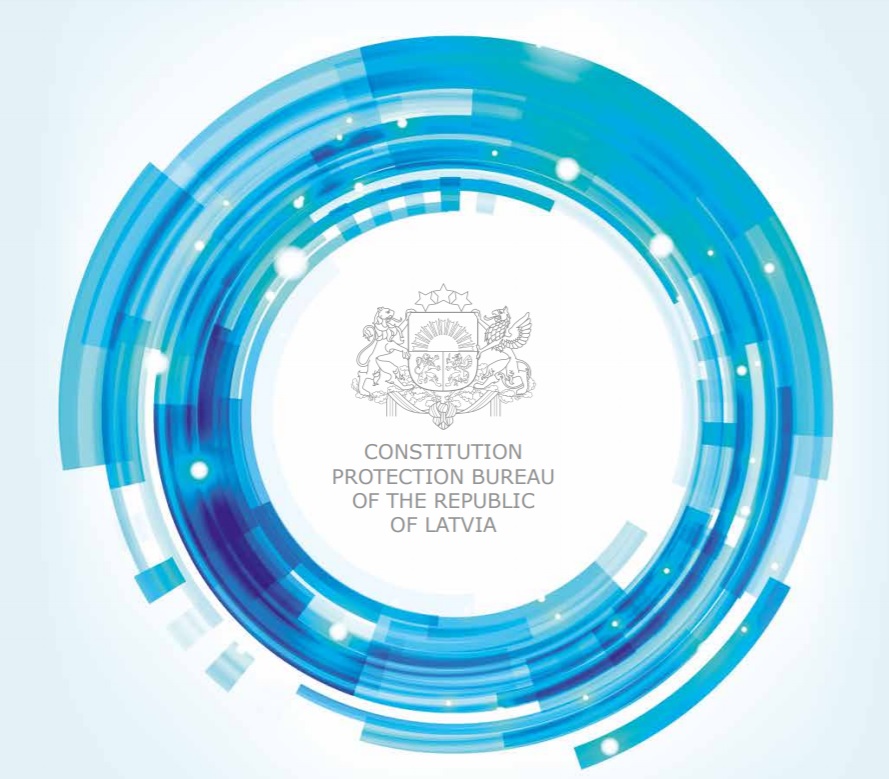SAB is one of three Latvian state security agencies. In accordance with the law, SAB performs intelligence and counter-intelligence activities, protects classified information, and supervises its exchange with international organizations.
As usual, around half of the report is taken up with concerns about Russia and general trends in that country's domestic and external policies, not all of it of direct relevance to SAB's activities.
However Saeima deputy Nikolajs Kabanovs (Harmony party) merits a specific mention in a section about revisionist history.
"The Kremlin directly and indirectly finances a series of pseudoacademic organizations and studies producing various publications and videos supporting narratives of historical memory favourable to the Kremlin. The Historical Memory Foundation, for instance, specializes in working on the Baltic States. The most prominent figures in the Foundation are Alexander Djukov and Vladimir Simindey, who have been recognized as persona non grata in Latvia. In 2019, the Foundation has published several books and publications, and organized various events dedicated to history, e.g. The Baltic Fracture (1918-1919). August Winnig at the Cradle of Estonian and Latvian Statehood, a book intending to disprove Estonian and Latvian historical myths, or the memories of Latvian Ambassador Edgars Krieviņš on the situation in Berlin during the late 1930s," explains the report.
"The latter, prepared by Simindey in co-operation with a Member of the Latvian Parliament, Nikolai Kabanov, will be published in the Journal of Russian and Eastern European History Studies. These people are also interviewed by Russian propaganda media as supposed experts in Baltic history, enabling them to reach a significant audience," the report says.
SAB also draws attention to a claim that "The Russian Embassy in Latvia has been commissioning and paying for articles in various Russian-language media in Latvia that are later published without any indications that the content is paid for and prepared in cooperation with the Russian Embassy. Thus the readers are misled by both the Embassy’s Press Service and the editorial staff of the media, denying them the opportunity to objectively understand the context of the publication."
The Russian Embassy is also named as wining and dining contacts to obtain information.
"The Russian Embassy’s press secretary Vadim Ponomarjov and his contacts in Latvia are developing cooperation beyond the usual format required for media work. He regularly invites individual contacts to dine in restaurants, presents gifts, and asks for a specific information and opinion on domestic policy, international relations, and social issues. In maintaining such a relationship with the Russian diplomat, V.Ponomarjov’s contact persons run the risk of being involved in covert or other activities contrary to Latvia’s interests," SAB says.
The latter part of the report contains specifics about SAB's own activites.
"In 2019, approximately 250 (compared to 190 in 2017) major denial-of-service attacks were targeted against DDoS-protected information systems, 15 of which were assessed to be large-scale and professionally implemented," the report says, adding that the main threats to NATO and EU security are posed by cyber activities of Russian and Chinese special services.
"Even though Russia should clearly be regarded as the main threat to Latvia’s national security, other countries can also harm Latvia by posing a threat to the collective security or national interests of our allies," it adds.
"In 2019, SAB issued 667 security clearances for access to national classified information, 1922 security clearances for access to NATO classified information, and 1960 security clearances for access to EU classified information; access to national classified information was denied in two cases, whereas access to NATO and EU classified information was denied in three cases," the report says.
There is also some information provided about legally-sanctioned phone taps conducted by SAB on behalf of various other security and law enforcement agencies. Though imprecise, the figures suggest just under 1,000 phone taps and interceptions were in place at any one time last year, with 35 % being used by the State Police, 21 % by the State Security Service (VDD) and 11.6 % by SAB itself.
In contrast the anti-graft Corruption Prevention and Combating Bureau accounted for just 2.2 % of legal interceptions.
The annual overview report is available to download and read online in English.





























